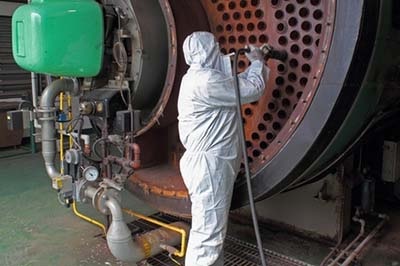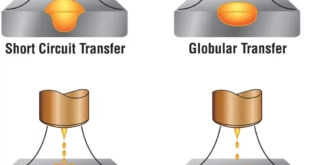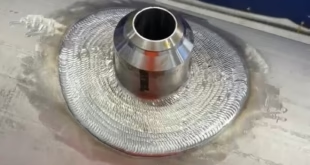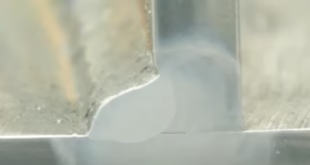Boilermaker Certification and Training
Introduction
Explanation of boilermaking
- Boilermaking is a specialized field within the construction and manufacturing industries that involves the fabrication, installation, and maintenance of boilers, tanks, and pressure vessels.
- Boilermakers work with a variety of materials, including steel, aluminum, copper, and brass, and use specialized tools and equipment to shape and weld these materials into custom-fitted components.
Importance of certification and training for boilermakers
- Certification and training programs are essential for boilermakers to ensure they have the necessary skills and knowledge to work safely and effectively with high-pressure equipment and materials.
- Boilermakers who undergo certification and training are more likely to be hired by employers and earn higher wages due to their specialized skills and knowledge.
- Certification and training also help ensure that work is performed to industry standards and regulations, reducing the risk of workplace accidents and injuries.
- Ongoing training and professional development are necessary for boilermakers to stay current with technological advancements and changes in the industry.
Boilermaker Certification
Types of certification
- National Board Inspection Code (NBIC) certifications
- American Society of Mechanical Engineers (ASME) certifications
- Other state and industry-specific certifications
Requirements for certification
- Completion of a training program or apprenticeship
- Successful completion of written and practical exams
- Ongoing continuing education and training
Benefits of certification
- Increased job opportunities and higher wages
- Demonstrated expertise and professionalism in the field
- Improved safety and quality of work performed
- Recognition by industry peers and employers.
Boilermaker Training
Types of training
- Vocational schools and community colleges
- Apprenticeship programs
- Employer-provided training
Curriculum and coursework
- Blueprint reading and technical drawing
- Welding and fabrication techniques
- OSHA safety standards and regulations
- Equipment maintenance and repair
- Computer-aided design (CAD) software and computer numerical control (CNC) machining
Benefits of training
- Enhanced job skills and knowledge
- Improved safety and quality of work performed
- Increased job opportunities and higher wages
- Greater job security and career advancement opportunities.
Boilermaker Apprenticeship
Explanation of apprenticeship
- Boilermaker apprenticeships are structured on-the-job training programs that provide individuals with the necessary knowledge and skills to become a journey-level boilermakers.
- Apprenticeships typically last between 3-4 years and consist of a combination of on-the-job training and classroom instruction.
Requirements for apprenticeship
- High school diploma or equivalent
- Minimum age requirement (usually 18 years old)
- Physical ability to perform the work
- Passing a drug test and background check
Benefits of apprenticeship
- Paid on-the-job training and classroom instruction
- Opportunities to learn from experienced professionals
- Gradual increase in wages as skills and knowledge improve
- Hands-on experience working with a variety of materials and tools
- Job security and career advancement opportunities.
Boilermaker Union Programs
Overview of Union programs
- Boilermaker unions offer a variety of training programs and resources to their members, including apprenticeships, continuing education courses, and job placement services.
- Union members also have access to benefits such as healthcare, retirement plans, and job protection.
Benefits of Union programs
- High-quality training and education programs
- Increased job opportunities and higher wages
- Access to benefits such as healthcare, retirement plans, and job protection
- Collective bargaining power to negotiate better working conditions and wages
- Opportunities for career advancement and networking with other professionals in the field.
Requirements for joining a union
- Meeting the eligibility requirements of the specific union, which may include completing a training program or apprenticeship, passing an exam, or having a certain amount of work experience.
- Paying membership dues and fees.
- Adhering to the union’s rules and regulations, including participating in strikes or other labour actions if called upon by the union leadership.
FAQs
What exactly does a boilermaker do?
A boilermaker constructs, installs, and maintains boilers, tanks, and other pressure vessels used in various industries. They work with a variety of materials including steel, aluminum, and copper, and use specialized tools and techniques to shape, fabricate, and weld these materials into various components. Boilermakers also perform routine maintenance and repair work on these structures.
Why are they called Boilermakers?
The term “boilermaker” comes from the early days of the steam engine, when boilers were used to power trains and steamships. Boilermakers were responsible for constructing and repairing these boilers, which were critical components of the steam engines.
Is a boilermaker an engineer?
While boilermakers may use engineering principles in their work, they typically do not hold engineering degrees. Boilermaking is a skilled trade that typically requires specialized training and certification.
Are boilermakers a dying trade?
While the demand for boilermakers may fluctuate depending on the industry and region, the trade is not considered to be dying. Boilermakers continue to be in demand in various industries, including power generation, petrochemicals, and manufacturing.
Is boilermaker a good job?
Boilermaking can be a rewarding career for those who enjoy working with their hands and have a strong attention to detail. The job can offer competitive wages, opportunities for advancement, and the satisfaction of contributing to the construction and maintenance of critical infrastructure.
Is boilermaker part of mechanical engineering?
Boilermaking is a separate trade from mechanical engineering, although there may be some overlap in the skills and knowledge required for each field.
What is another name for a boilermaker?
Boilermakers may also be referred to as pressure vessel fabricators or boilermaker welders.
Which subject is best for boilermaker?
There is no single subject that is best for becoming a boilermaker. However, subjects such as mathematics, physics, and welding may be useful for those interested in pursuing this trade.
What is the difference between a welder and a boilermaker?
While both welders and boilermakers work with metal and use welding techniques, boilermakers typically have more specialized knowledge and skills related to the construction and maintenance of boilers, tanks, and other pressure vessels.
Are boilermakers in demand in Canada?
Boilermakers are in demand in various industries in Canada, including oil and gas, mining, and manufacturing. The demand for boilermakers may vary depending on the region and industry.
What level is boilermaker?
Boilermaker is a skilled trade that typically requires several years of training and experience. There are various levels of certification and apprenticeships available for boilermakers, which may vary by region and industry.
What tools do boilermakers use?
Boilermakers use a variety of tools, including welding equipment, cutting torches, grinders, drills, hammers, wrenches, and hoists. They may also use specialized tools such as flange spreaders, tube expanders, and alignment jacks to construct and maintain boilers and other pressure vessels.
Conclusion
Recap of importance of certification and training for boilermakers
- Boilermakers work with high-pressure equipment and materials that require specialized skills and knowledge to handle safely and effectively.
- Certification and training programs help ensure that workers have the necessary skills and knowledge to perform their jobs to industry standards, reduce workplace accidents and injuries, and enhance the quality of work performed. B. Final thoughts and recommendations
- Aspiring boilermakers should consider pursuing certification and training programs to enhance their skills and job prospects.
- Joining a union can also provide valuable resources and benefits to boilermakers.
- Employers should prioritize hiring certified and trained boilermakers to ensure the safety and quality of their work.
Final thoughts and recommendations
- Aspiring boilermakers should research and pursue certification, training, and apprenticeship opportunities to develop the necessary skills and knowledge to succeed in the field.
- Employers should prioritize hiring certified and trained boilermakers to ensure the safety and quality of work performed.
- Boilermakers should also pursue ongoing training and professional development opportunities to stay current with industry changes and advancements.
- Finally, joining a union can provide valuable resources and benefits to boilermakers, including access to training and job placement services, collective bargaining power, and job protection.
 Welding of Welders All about Welding and Welders
Welding of Welders All about Welding and Welders




